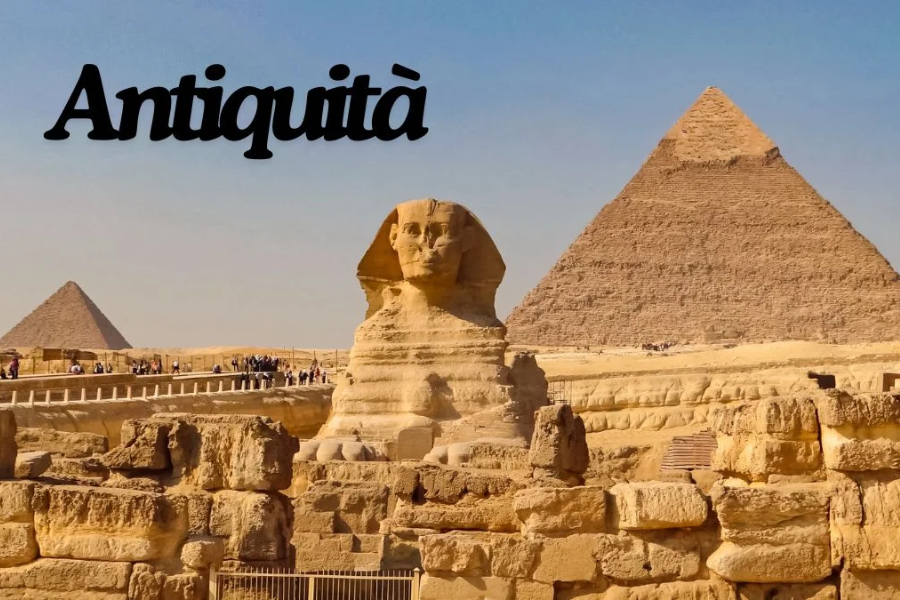Rediscovering Antiquità: The Timeless Legacy of Ancient Civilizations
The word antiquità evokes a profound connection to the legacy of ancient civilizations that laid the groundwork for much of our modern world. Derived from the Latin antiquus, meaning “ancient” or “old,” antiquità encompasses the cultural richness and innovations of societies like Classical Greece and Rome. Through the study of these antiquities, historians and archaeologists piece together the complex stories of human endeavor, shedding light on the cultural, political, and social dynamics that defined the ancient world.
The Historical Significance of Antiquità: What Artifacts Reveal
Artifacts like coins, statues, vases, and inscriptions serve as portals to the past, revealing invaluable information about the daily lives, achievements, and aspirations of ancient peoples. Each piece of antiquità is more than a historical record—it is an embodiment of aesthetic mastery that has continued to captivate viewers for generations.
Antiquità as the Foundation of Western Civilization
Greek antiquities are the cornerstones of Western art, philosophy, and politics. The legacies of ancient Greek city-states—found in their advancements in architecture, governance, and intellectual thought—continue to influence contemporary society. The Parthenon in Athens, an iconic symbol of architectural brilliance, and the philosophical works of Plato and Aristotle, foundational to Western thought, are only a few examples of antiquità that remain highly relevant.
The Etruscans, a pre-Roman civilization in Italy, also made vital contributions to early antiquità, influencing Rome’s religious practices and urban planning. Renowned for their refined bronze work and expressive tomb paintings, Etruscan antiquities provide glimpses into a society that set the stage for Rome’s rise and cultural expansion.
In turn, Roman antiquities—from the monumental grandeur of the Colosseum to innovations in engineering—highlight the enduring impact of Roman civilization. Roman art, with its realism and grandeur, reflects the vast reach and cultural diversity of the Empire. Works such as Virgil’s epics and Cicero’s philosophical writings, part of Rome’s preserved antiquità, continue to shape literary traditions worldwide.
Preserving Antiquità: Why Conservation Matters
Preservation and study of antiquità are crucial for understanding the evolution of human societies. Through excavations, archaeologists reveal treasures long hidden, providing insight into ancient customs, technologies, and beliefs. Institutions devoted to the conservation of antiquità ensure that these pieces of history remain accessible for future generations, preserving cultural knowledge and continuity.
Challenges in Antiquità: Ethical Considerations and Repatriation
The field of antiquità is not without its challenges, facing issues of looting, illegal trade, and ethical debates surrounding artifact ownership. Repatriation efforts highlight ongoing discussions about the rightful home of cultural heritage, and the role of museums and private collectors in safeguarding antiquità from around the world.
The Aesthetic Appeal of Antiquità: Beauty Beyond History
Antiquità is not only historically significant but also visually captivating. Greek sculptures, famed for their lifelike forms and expressiveness, capture myths and moments of daily life with unparalleled skill. Roman mosaics depict everything from imperial pageantry to everyday activities, illustrating the artistic prowess within the Roman Empire. The beauty of antiquità engages viewers across centuries, allowing us to feel a tangible connection to these ancient worlds.
Antiquità Today: Its Educational and Cultural Value
Studying antiquità offers insights beyond historical knowledge, influencing modern perspectives on cultural identity and human continuity. The exploration of ancient Greek and Roman foundations encourages a deeper appreciation of global heritage and diversity. Educational programs that integrate antiquità enrich learning by fostering critical thinking and cross-cultural understanding, providing students worldwide with an enriched worldview.
Antiquità for the Future: Continuing the Legacy
In essence, antiquità captures the spirit of ancient civilizations, celebrating their achievements, struggles, and legacies. From Greek philosophy to Roman engineering marvels, antiquità provides a lasting connection to humanity’s origins. By studying and conserving these artifacts, historians and archaeologists preserve cultural memory and encourage a shared appreciation of human history.
Through sustained research, conservation efforts, and ethical stewardship, antiquità will continue to educate and inspire future generations. The stories embedded within antiquità ensure that the voices of ancient civilizations resonate across time, bridging the past with our present and future.
Conclusion: The Lasting Influence of Antiquità
In conclusion, antiquità serves as a vital link to ancient civilizations, preserving their wisdom, creativity, and innovations for future generations. The study and conservation of these artifacts enable us to appreciate the complex legacy of societies like Greece, Rome, and the Etruscans—civilizations whose philosophies, arts, and technologies continue to shape our world. As we strive to protect and honor these treasures, we reinforce our collective identity, deepening our understanding of human history and cultural diversity. The enduring beauty and significance of antiquità remind us of our shared journey through time, ensuring that the lessons and achievements of the ancient world inspire and educate for years to come.
Keep an eye for more news & updates on Vents Radar!
